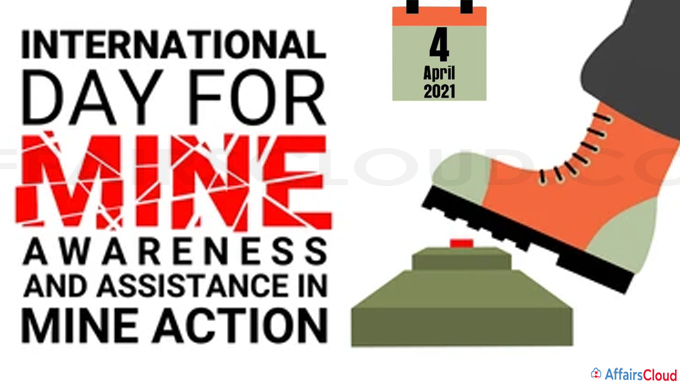History of corruption in the world
Corruption, a term that sends shivers down the spine of governance, has been an unwelcome companion throughout human history. From ancient empires to modern democracies, it has left its mark on societies worldwide. In this comprehensive exploration, We investigate the dark past of corruption, shedding light on its most terrible periods. Ancient civilizations like Mesopotamia, Egypt, and Greece were no strangers to corruption. In these early societies, power often rested in the hands of the few, leading to nepotism, bribery, and favoritism. Leaders and officials enriched themselves at the expense of the common people, sowing the seeds of discontent and eventual downfall.
Ancient Beginnings:
Corruption isn’t a new phenomenon; it’s as old as civilization. In the ancient world, power often bred greed and manipulation. Take, for instance, the Roman Empire, where senators and officials lined their pockets with bribes, leading to the empire’s eventual downfall.Corruption was a persistent problem in ancient China, particularly during periods of political upheaval and dynastic transition. The Confucian emphasis on moral integrity and virtuous leadership did little to prevent corruption among government officials, who often used their positions for personal gain. The Han dynasty, for example, saw widespread corruption in the form of bribery, extortion, and abuse of power, leading to social unrest and instability.
Corruption was present in the city-states of ancient Mesopotamia, where rulers and officials wielded significant power over their subjects. Cuneiform tablets from this period reveal instances of bribery, embezzlement, and favoritism in the administration of justice and the collection of taxes. The ancient Babylonian king Hammurabi, famous for his legal code, sought to curb corruption by imposing severe penalties on corrupt officials.
Corruption was prevalent in ancient Greek city-states, where political power often rested in the hands of a small elite. In Athens, for example, the democratic system was susceptible to manipulation by wealthy individuals known as “demagogues,” who would use their influence to sway public opinion and advance their own interests. The practice of “liturgies,” where wealthy citizens were required to fund public projects, was also prone to abuse, with some individuals using their contributions to gain political favor.
Colonial Exploitation: History of corruption in the world
The era of colonization brought with it a new form of corruption – one that exploited entire nations for profit. Countries like India, under the rule of the British East India Company, suffered from rampant bribery and exploitation of resources, leaving scars that still linger today.
Modern Malaise:
Fast forward to the modern era, and corruption still thrives, albeit in different forms. In Nigeria, for example, corruption has become so ingrained in the political system that it’s stifling progress and perpetuating poverty among its people.
Global Hotspots:
While corruption exists in varying degrees worldwide, some countries have gained notoriety for their widespread corruption. Venezuela is a prime example, where corruption has led to economic collapse and social unrest, leaving its citizens struggling to survive. Allegations of embezzlement, bribery, and money laundering have plagued the regime of President Nicolás Maduro, contributing to the country’s economic collapse and humanitarian crisis.
According to Transparency International’s Corruption Perceptions Index, Somalia consistently ranks among the most corrupt countries in the world. The country has struggled with weak governance, political instability, and conflict, providing fertile ground for corruption to thrive across various sectors, including government, business, and security.
South Sudan, the world’s youngest country, has faced significant challenges since gaining independence in 2011. Corruption is pervasive, with government officials and military leaders accused of embezzlement, nepotism, and misappropriation of public funds. The ongoing civil conflict has exacerbated these issues, further undermining governance and accountability.
Iraq faces significant challenges stemming from corruption, which undermines efforts to rebuild the country after years of conflict and instability. Corrupt practices, including bribery, kickbacks, and nepotism, are pervasive in government institutions, hindering development and exacerbating social grievances.
Also watch : The Story of the First Computer Processor
Is the ostrich the world’s largest bird
Dubai: From Past to Present | Maya (mayathevoice.com)
Here are some highlighted incidents of corruption from various parts of the world in modern history:
1.The Watergate Scandal (United States, 1972-1974):
The Watergate scandal remains one of the most infamous instances of political corruption in modern history. It involved a break-in at the Democratic National Committee headquarters in the Watergate complex in Washington, D.C., and subsequent attempts by the Nixon administration to cover up its involvement. The scandal led to the resignation of President Richard Nixon and shook the foundations of American democracy.
2. The Petrobras Scandal (Brazil, 2014):
The Petrobras scandal, also known as Operation Car Wash, exposed widespread corruption within Brazil’s state-owned oil company, Petrobras. High-ranking executives and politicians were implicated in a kickback scheme involving inflated contracts and bribes. The scandal not only rocked Brazil’s political establishment but also had far-reaching consequences for its economy and reputation.
3. The 1MDB Scandal (Malaysia, 2009-2018):
The 1Malaysia Development Berhad (1MDB) scandal involved allegations of embezzlement and money laundering linked to a Malaysian government investment fund. Billions of dollars were allegedly siphoned off by high-level officials, including former Prime Minister Najib Razak. The scandal led to Najib’s ousting from power and triggered investigations in multiple countries, including the United States and Switzerland.
4. The Gupta Family Scandal (South Africa, 2010s):
The Gupta family, prominent business figures with close ties to former South African President Jacob Zuma, became embroiled in a series of corruption scandals involving government contracts and influence peddling. The scandal revealed the extent of corruption within South Africa’s political elite and sparked widespread public outrage, contributing to Zuma’s resignation in 2018.
5. The Siemens Bribery Scandal (Germany, 2008):
The Siemens bribery scandal exposed one of the largest corporate corruption cases in modern history. The German engineering giant was found to have paid hundreds of millions of dollars in bribes to secure contracts around the world. The scandal led to hefty fines and legal repercussions for Siemens executives and underscored the pervasive nature of corruption in global business practices.
These incidents serve as stark reminders of the corrosive impact of corruption on societies and economies worldwide. They highlight the importance of robust anti-corruption measures, transparency, and accountability in safeguarding the integrity of public institutions and promoting ethical governance.
Conclusion:
These countries represent just a handful of examples of global hotspots for corruption. While the specific manifestations and root causes of corruption may vary, the consequences are universally damaging, eroding trust in institutions, stifling economic growth, and perpetuating social inequality. Addressing corruption requires concerted efforts to promote transparency, accountability, and the rule of law, both domestically and internationally.Corruption, an age-old adversary, continues to plague nations across the globe. Its tendrils reach far and wide, leaving a trail of devastation in their wake. But awareness and action can be our weapons in this fight. By shining a light on corruption’s dark corners and holding perpetrators accountable, we can strive for a future where integrity and transparency reign supreme.




